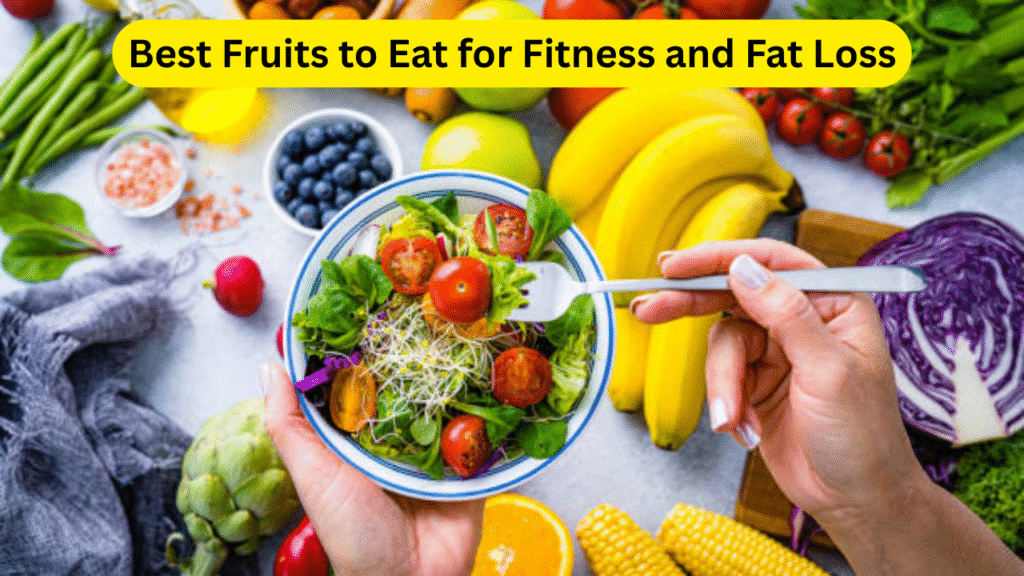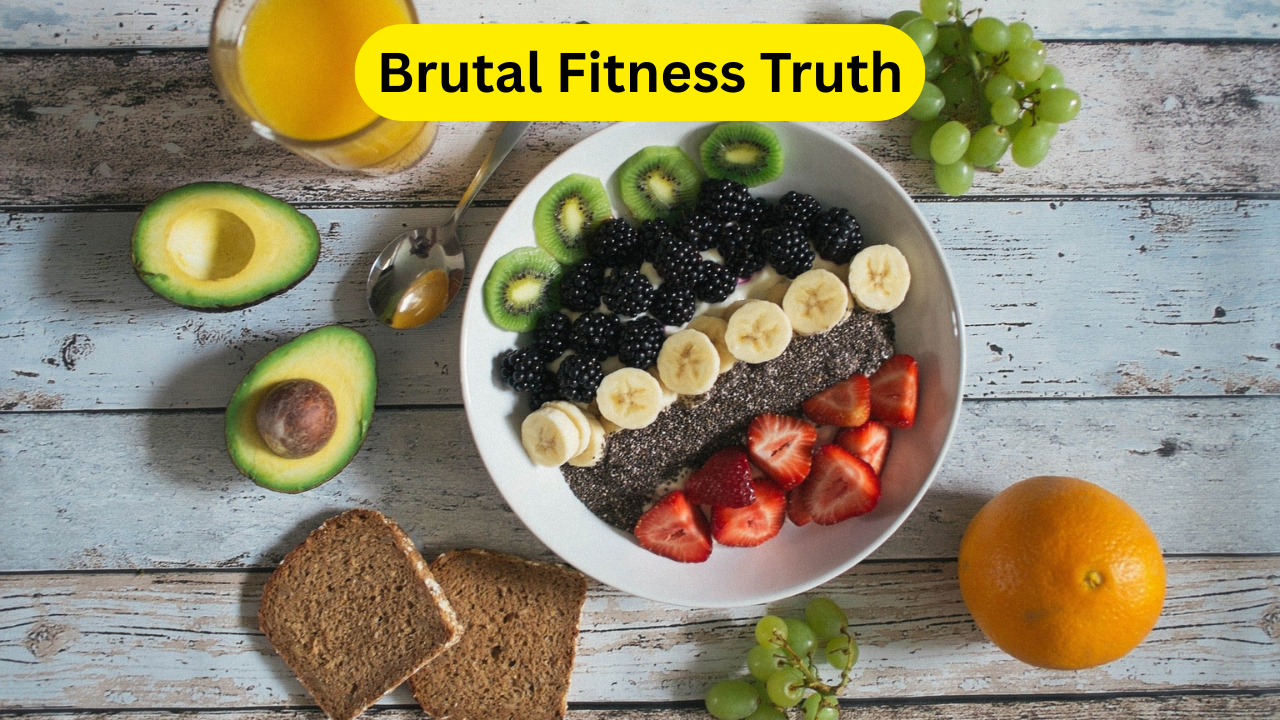Brutal Fitness Truth: Spending six dedicated years in the gym has taught me many things—discipline, resilience, proper form, and the harsh truths that most fitness influencers or trendy diet plans won’t tell you. One of the most eye-opening revelations was about food, particularly fruits. In an era obsessed with calorie counting, keto hacks, and “low-carb” everything, fruit often gets unfairly demonized. Yet, fruits have never been the enemy of a fit, lean, and muscular body. Quite the opposite—they’re nutritional goldmines that most people overlook or even avoid due to outdated fitness myths.
Fitness is more than lifting weights or hitting cardio—it’s about holistic well-being, internal health, energy levels, and sustainable progress. People often think fruit makes them fat due to its sugar content. But there’s a big difference between natural sugars from fruits and the processed sugars hidden in junk food. Fruits are rich in fiber, water, vitamins, minerals, antioxidants, and even compounds that support fat loss. What many fail to realize is that you can eat a lot of fruit without sabotaging your fitness goals—in fact, it can enhance them.
So let’s break the myth and dive deep into the truth behind fruit consumption and fitness. You’ll understand why you can (and should) eat all the damn fruits you want—without guilt. We’ll explore the science behind fruit sugars, calorie density, fat loss mechanisms, and the real-world experiences that show fruit is not only safe but incredibly beneficial for your physique and health.
Why People Fear Fruits in Fitness
The Fruit Sugar Myth: Understanding Fructose
The common argument against fruits in diets is their sugar content—specifically fructose. However, the naturally occurring fructose in fruits behaves very differently from high-fructose corn syrup found in sodas or processed foods. Fruits come packed with fiber, water, and essential nutrients that slow down sugar absorption and keep your insulin levels stable.
Misleading Calorie Myths
Another misconception is that fruits are “carb-heavy” and thus must be restricted for fat loss. In truth, fruits are incredibly low in calories relative to their volume. For example, you can eat an entire mango (~200g) for just 150 calories, a banana for about 100 calories, and a whole watermelon wedge for 85 calories. Compare that with just one donut or a slice of pizza which easily exceeds 300+ calories—and you’ll see fruits aren’t the problem.
Also read: 2025 Mercedes-AMG CLE 53 Cabriolet Review: Luxury, Power, and Open-Top Thrills in the UK
Top Reasons You Can Eat All the Fruits You Want
1. Fruits Are High in Fiber and Satiety
Fiber slows down digestion, curbs cravings, and keeps you fuller for longer. Fruits like apples, oranges, berries, and pears are rich in soluble fiber, which helps regulate blood sugar levels and supports gut health—two essential factors for sustainable fat loss.
2. Natural Sugars vs. Processed Sugars
Natural sugars in fruits are not harmful when eaten in whole food form. They come with fiber and nutrients that aid digestion and metabolic health. On the other hand, processed sugars like table sugar or syrups are absorbed rapidly and stored as fat more easily due to insulin spikes.
3. Low Energy Density Means You Can Eat More
Fruits have a high water and fiber content, making them low in energy density. That means you can eat large quantities without consuming too many calories—ideal for people trying to feel full while cutting fat.
4. Packed with Micronutrients
Every fruit is a multivitamin in disguise. Bananas are rich in potassium, oranges are packed with vitamin C, berries are antioxidant powerhouses, and mangoes are loaded with vitamin A and enzymes for digestion. These nutrients help with muscle recovery, reduce inflammation, and support overall performance.
5. Fruits Aid Hydration and Digestion
Most fruits are over 80% water, making them excellent for hydration. Additionally, the enzymes in fruits like papaya, pineapple, and kiwi aid digestion, reduce bloating, and improve gut health—all of which can enhance your physique.
Best Fruits to Eat for Fitness and Fat Loss
| Fruit | Key Benefits | Calories per 100g |
|---|---|---|
| Apple | High fiber, low calorie, great for satiety | 52 |
| Banana | Potassium-rich, great pre-workout energy | 89 |
| Berries | Antioxidant-rich, low in sugar and carbs | 57 |
| Orange | High vitamin C, boosts immunity and hydration | 47 |
| Watermelon | High water content, excellent post-workout fruit | 30 |
| Papaya | Enzymes that aid digestion and reduce bloating | 43 |
| Pineapple | Anti-inflammatory, supports muscle recovery | 50 |
| Mango | Vitamin A-rich, promotes skin and eye health | 60 |
When to Eat Fruits for Maximum Benefits
Pre-Workout
Fruits like bananas, apples, or dates provide quick, clean energy before a workout without bloating or heaviness. They’re rich in natural carbs that power your lifts and endurance.
Post-Workout
Water-rich fruits like watermelon, pineapple, or oranges help rehydrate and provide nutrients for muscle recovery. Pair them with a protein source like a shake or Greek yogurt for optimal results.
Snack or Meal Replacement
Instead of grabbing a processed snack, a fruit bowl with mixed berries, mango, and nuts can keep you full and energized for hours—plus it satisfies sweet cravings.
Real-Life Experience: My Own Journey With Fruit and Fitness
At one point, I too fell into the trap of fearing carbs, especially fruits. I cut them out thinking it would help me get leaner, but I ended up fatigued, low on energy, and constantly craving sweets. Once I reintroduced fruits freely into my diet, my energy returned, digestion improved, and I felt satisfied without overeating junk. I even got leaner because I stopped bingeing on processed sweets. I now eat 3–5 servings of fruit daily and continue to stay in great shape.
Expert Opinions and Research Backing Fruit Consumption
Multiple studies published in journals like Nutrients and The American Journal of Clinical Nutrition confirm that fruit consumption is inversely related to body weight and fat gain. In other words, people who eat more fruits tend to weigh less and stay leaner.
Even the World Health Organization (WHO) and the Centers for Disease Control (CDC) recommend at least 5 servings of fruits and vegetables per day for optimal health. Fitness experts like Jeff Nippard, Layne Norton, and others regularly emphasize that fruit is not your enemy—it’s a tool for fat loss and health.
Also read: The Best Push Day Routine: Maximize Your Muscle Growth and Strength

Brutal Fitness Truth Conclusion
Fruit is not the problem—it’s part of the solution. If your goal is to build muscle, burn fat, increase energy, and improve overall health, fruits should be a daily part of your diet. The fear surrounding fruit comes from misinformation and outdated science. As someone who has trained for years and tested various diets, I can confidently say that fruits have never held me back—in fact, they’ve helped me go further.
Don’t fall for fear-mongering fitness advice. Fruit isn’t making you fat—processed junk food is. By incorporating a wide variety of fruits into your diet, you get to enjoy delicious, nutrient-packed foods that fuel your body and mind.
From apples to mangoes, from bananas to berries—every fruit serves a purpose. They support your workouts, accelerate recovery, and help you maintain a healthy metabolism.
You don’t have to count every grape or avoid mangoes just because they’re “high in sugar.” Fitness is about the big picture—balance, consistency, and long-term health.
Eat the damn fruits. Your body will thank you for it—and your taste buds will, too.
Brutal Fitness Truth FAQs
1. Can I eat fruits every day and still lose weight?
Yes, absolutely. Fruits are low in calories and high in fiber, which keeps you full. They also help control cravings. As long as you’re in a slight calorie deficit and staying active, eating fruit daily can actually support weight loss.
2. What are the best fruits for muscle gain?
Bananas (great for pre-workout), mangoes (vitamin A and enzymes), and pineapple (anti-inflammatory) are excellent for muscle gain. Pair them with a protein-rich food to enhance muscle recovery and growth.
3. Is the sugar in fruit bad for fat loss?
No. The natural sugar in fruit comes with fiber, water, and nutrients that slow digestion and prevent blood sugar spikes. This is very different from refined sugar found in processed foods.
4. How many servings of fruit should I eat per day?
For most active individuals, 3–5 servings of fruit daily is ideal. This provides a wide range of vitamins, antioxidants, and fiber without overloading calories. Variety is key—mix berries, citrus, bananas, and tropical fruits.
5. Should I avoid fruits on a low-carb or keto diet?
Strict keto diets do limit fruits due to their carb content. However, most people don’t need to be in ketosis to lose fat. Unless you’re on a medical ketogenic plan, you can eat fruits freely and still achieve your goals through balanced nutrition.









